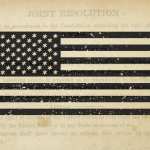This story was co-published with The Washington Post.
When Amy Cooper called the police on a Black man who asked her to leash her dog in New York City’s Central Park over the Memorial Day holiday, the incident became the latest chapter in the fraught legacy of a gendered and racial dynamic dating back to slavery in America, one that persists in the nation’s imagination today.
It is rooted in an idea, backed by generations of violence, that White womanhood is to be protected and that Black men are inherently criminal. The phenomenon is a specific strain of American racism, said Robin DiAngelo, author of “White Fragility.”
“Who doesn’t know that calling the police on Black people risks them being shot?” she said. “This invokes a history of terror. When a White woman says, ‘I’m going to call the police,’ she’s basically saying, ‘You might die.’ ”
“This woman instantly knew to evoke centuries of caste privilege as a White woman and endanger the life of a Black man,” said Isabel Wilkerson, who wrote about the lives of millions of Black Americans who fled White terrorism in search of a better life during the Great Migration.
This weekend’s incident involving Cooper and Christian Cooper (no relation) — a Harvard graduate and birdwatching enthusiast who is a board member of the Audubon Society — was captured by Christian Cooper on cellphone video. Amy Cooper can be seen approaching Christian Cooper in an on-leash area of the park.
Amy Cooper asked him to “please stop” recording to which Christian Cooper responds: “Please don’t come close to me.”
“She knows she’s wrong,” DiAngelo said. “She’s not supposed to have her dog off the leash, but by making herself the victim, she doesn’t have to take responsibility for what she’s actually doing.”
Moments later, Amy Cooper warns Christian Cooper that she is about to call the police to “tell them that there’s an African American man threatening my life.” Christian Cooper continues recording the incident, which lasts for more than a minute, and includes images of the dog, Henry, straining against his collar, which she is clutching.
Amy Cooper’s voice becomes increasingly pitched on the phone with the police, where she repeats that Christian Cooper is “an African American man” who is threatening her. “Please send the cops immediately!” she screams.
Christian Cooper can be heard at the end of the video saying, “Thank you,” as she clips her dog’s leash onto his collar.
“White fragility is not rational,” DiAngelo said. “He doesn’t defer, he doesn’t back down, he’s dignified, he’s competent and calm. The more he is those things, the more unraveled she becomes.”
“Birdwatching while Black” became the latest potentially dangerous infraction, particularly for a Black man, shocking thousands who viewed the exchange on social media and prompting outrage and action from many Americans. During the pandemic alone, “running while Black” and “sleeping while Black” became trending hashtags on social media in response to the recent deadly shootings of Ahmaud Arbery and Breonna Taylor, respectively.
“For Black folks, it is just devastating to know that on the one hand, we are being disproportionately infected and killed by the coronavirus, and that on the other hand, we’re disproportionately infected and killed by the virus of racism,” said historian Ibram X. Kendi, director of the Antiracist Research and Policy Center at American University and author of “Stamped from the Beginning: A Definitive History of Racist Ideas in America.”
Within hours of the incident surfacing online, Amy Cooper, a senior vice president at Franklin Templeton Investments, surrendered her dog and was placed on administrative leave at work. A day later, she was fired.
A century ago, the solution could have been a lynch mob, but today it is more often law enforcement that arrives, killing unarmed Black people with alarming frequency. Technology has been both a tool and a weapon in this era, used to both activate the police and to record proof that the Black person in the exchange was not the aggressor or perpetrator.
Similar behavior by White women in recent years has been recorded. In an April 2018 incident, Jennifer Schulte — nicknamed “BBQ Becky” on social media — was recorded calling the police on two Black men grilling in an Oakland park, her voice panicked.
“I’m really scared! You gotta come quick!” Schulte tells the police.
The belief that White women are deeply fearful of Black men is also ingrained in our society, said Kendi.
“What is inherent is the essential belief of the helpless victim, the projection to racist White men to come and help and save me,” Kendi said. “The way in which White women have been defended, particularly in the last few decades, has been by calling 911. They view that as a privilege, that when there’s a dispute across racial lines, the police will always have their back.”
The concept is at the core of the American imagination, from the premise of D.W. Griffith’s racist “Birth of A Nation,” to the plot of Harper Lee’s “To Kill A Mockingbird.” It’s also evocative of real-world violence, such as the 1955 killing by two White men of Emmett Till, a 14-year-old Chicago boy, in Money, Miss., after he was accused of whistling at a White woman. Carolyn Bryant Donham recanted her story in 2017 to a historian.
Before White women could vote, they could lodge an accusation against a Black person that could be deadly, said University of California historian Stephanie Jones-Rogers, who wrote a book about White women during slavery.
“The power that [Amy Cooper] felt she had, the power to be believed … is a very long-standing power that White women have possessed and chosen to exercise at various points in our history,” said Jones-Rogers, author of “They Were Her Property: White Women as Slave Owners in the American South.”
“In some cases, they know it’s a deadly power, and they know it when they choose to exercise it,” Jones-Rogers said.
Despite an increased awareness of such incidents with the advent of technology, they continue happening because of the persistence of White privilege, which leads to what Yale University sociologist Elijah Anderson describes as “racialized disrespect.”
“This is the story of America, this tension between people coming from the Black space and moving into the larger society,” he said, explaining what he describes in his research as “the cosmopolitan canopy.”
“These spaces exist as these diverse islands of racial civility located in a sea of racial segregation,” Anderson said. “The canopy is a beautiful place — until it’s not.”






